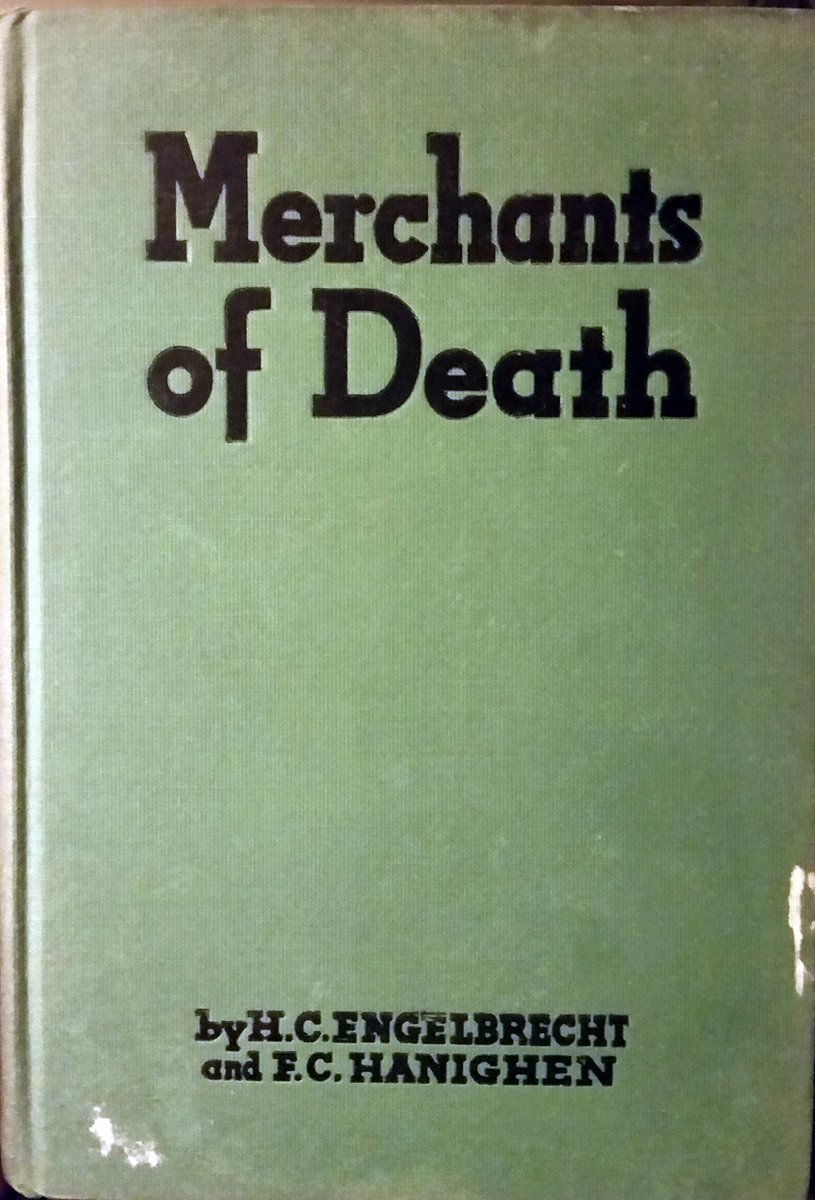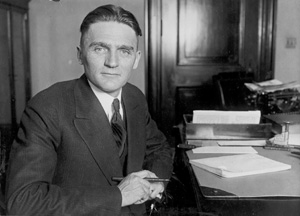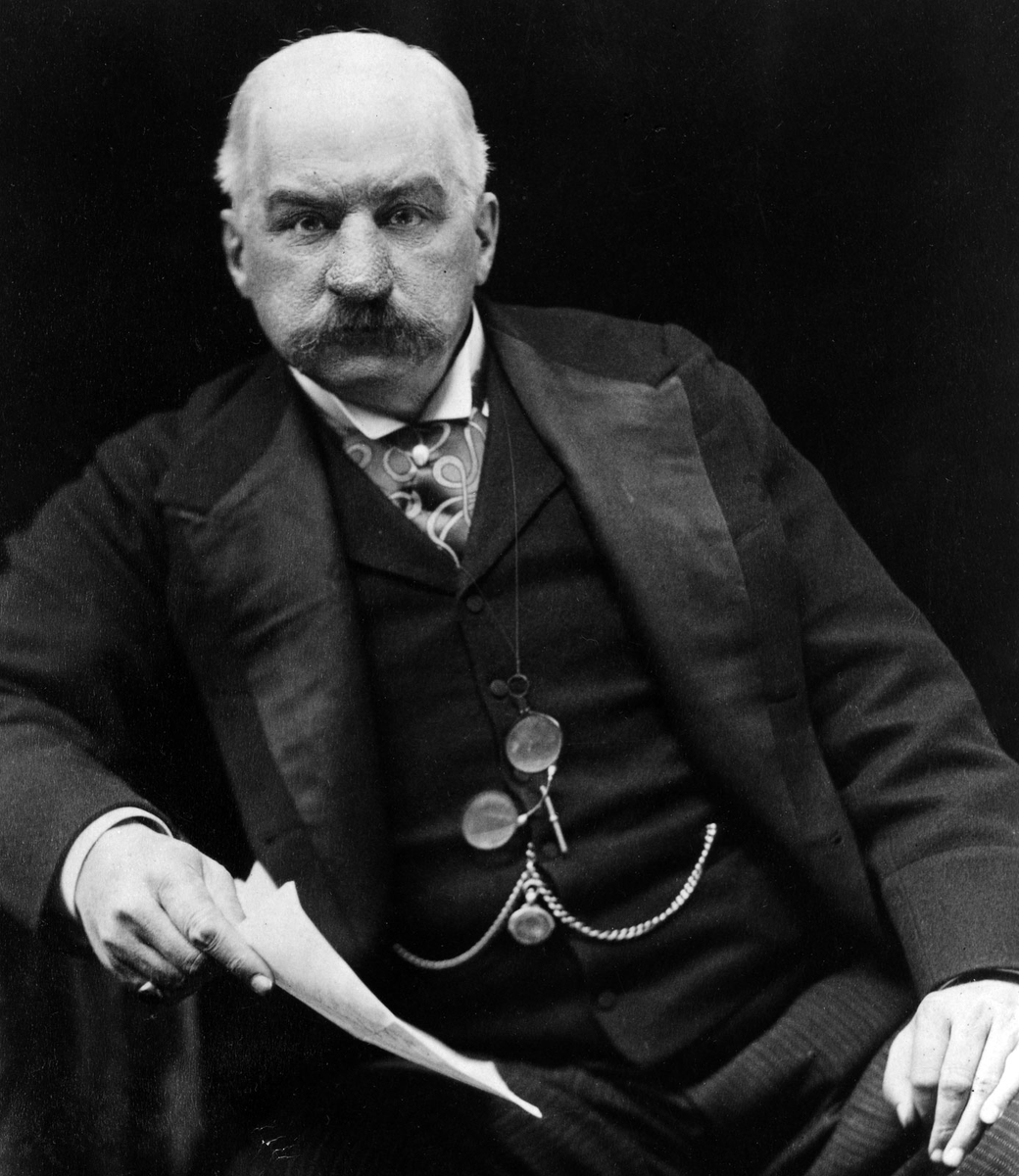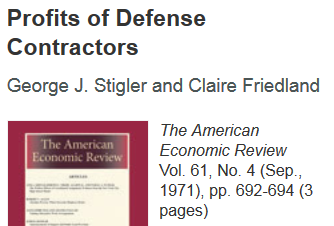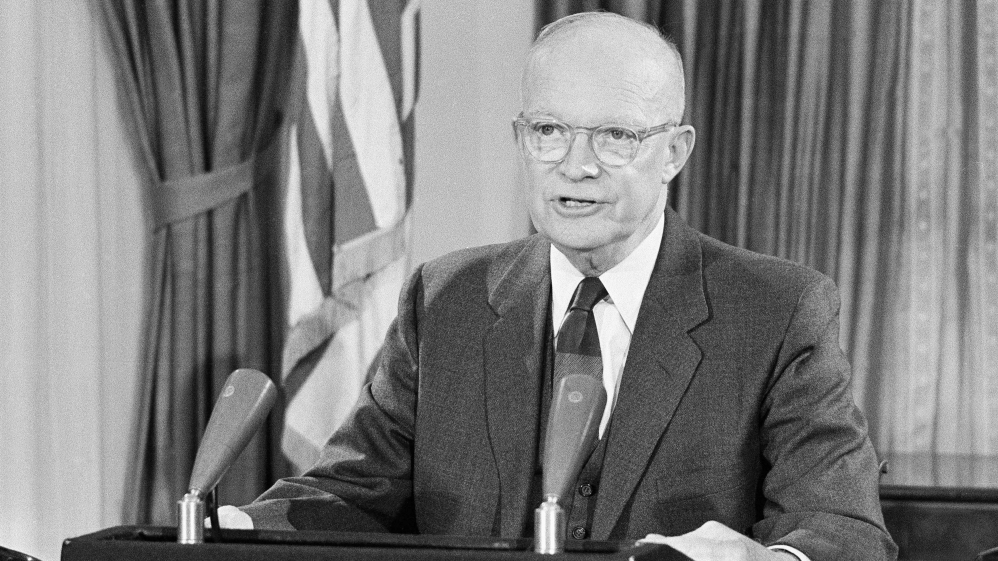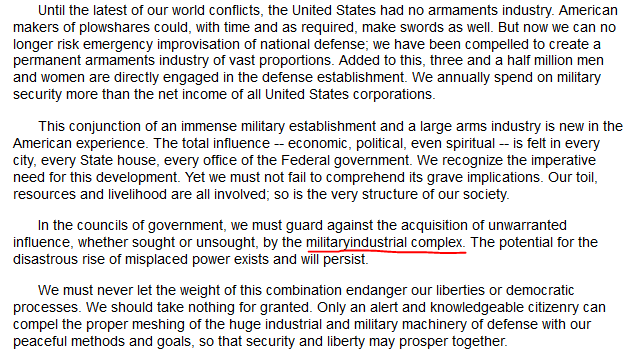Do top US Generals seek war for profit, as claimed by @realDonaldTrump?
No...but it's complicated.
[THREAD] https://twitter.com/wolfblitzer/status/1303049106026369025
No...but it's complicated.
[THREAD] https://twitter.com/wolfblitzer/status/1303049106026369025
It's complicated because we have to answer two questions:
1) Is war profitable?
2) Can generals earn some of those profits?
Let's tackle one at a time.
1) Is war profitable?
2) Can generals earn some of those profits?
Let's tackle one at a time.
Is war profitable?
You bet! At least for some.
You bet! At least for some.
Public concern over the American defense sector profiting from American wars (in Afghanistan and Iraq) is well captured by this @USATODAY article from 2019 https://www.usatoday.com/story/money/2019/02/21/military-spending-defense-contractors-profiting-from-war-weapons-sales/39092315/
But criticism of "war profits" is not new.
It goes back to at least the "Merchants of Death" claims following WWI.
It goes back to at least the "Merchants of Death" claims following WWI.
The claims that US arms manufacturers induced the United States to enter World War I led then US Senator Gerald Nye to form the Special Committee on Investigation of the Munitions Industry (1934-1936)
His committee brought to light the profits earned by some defense contractors and the financial stake that many US financial firms (and individuals, like J.P. Morgan) had in an allied victory (due to lending)
To be clear, it wasn't just arms dealers (and those that financed the transactions) that made money during the war.
For example, the war caused an export driven boom in the auto-industry (as described in this 1915 @sciam article) https://www.scientificamerican.com/article/influence-of-the-war-on-the-automob/
For example, the war caused an export driven boom in the auto-industry (as described in this 1915 @sciam article) https://www.scientificamerican.com/article/influence-of-the-war-on-the-automob/
The idea of "war profits" or "excessive profits" in the defense industry has been a subject of academic inquiry.
Unsurprisingly, American academic interest in this idea seems to track with long American Wars.
Consider this @JPolEcon piece from 1973...
https://www.journals.uchicago.edu/doi/10.1086/260067
Unsurprisingly, American academic interest in this idea seems to track with long American Wars.
Consider this @JPolEcon piece from 1973...
https://www.journals.uchicago.edu/doi/10.1086/260067
...or this 1971 @AEAjournals piece by @NobelPrize winner George Stigler & Claire Friedland
https://www.jstor.org/stable/1811862?seq=1#metadata_info_tab_contents
https://www.jstor.org/stable/1811862?seq=1#metadata_info_tab_contents
Side note: Strongly recommend reading more about Friedland, Stigler's longtime research assistant https://promarket.org/2017/11/22/chicagos-hidden-figure-chat-claire-friedland-work-george-stigler/
Interest continued after the Cold War and the beginnings of the "Peace Dividend" era.
Examples include Ruben Trevino & Robert Higgs in Defence Economics... https://www.tandfonline.com/doi/abs/10.1080/10430719208404729
Examples include Ruben Trevino & Robert Higgs in Defence Economics... https://www.tandfonline.com/doi/abs/10.1080/10430719208404729
...and EuGene Gholz & Harvey Sapolsky in @Journal_IS in 2000 https://www.mitpressjournals.org/doi/10.1162/016228899560220?mobileUi=0
The fact that these firms rely on government contracts (to who else would they sell weapons?) feeds into concerns about what President Eisenhower called "The Military-Industrial Complex"
Echoing the "Merchant of Death" concern, Eisenhower warned of how reliance on having a permanent arms industry (while deemed necessary) could begin to corrupt American priorities & values.
https://avalon.law.yale.edu/20th_century/eisenhower001.asp
https://avalon.law.yale.edu/20th_century/eisenhower001.asp
Rebecca Thorpe, in her outstanding @UChicagoPress book, labeled this the "American Warfare State" https://press.uchicago.edu/ucp/books/book/chicago/A/bo17607479.html
Moreover, concerns about the Defense Industry-Government link is how we got the phrase "The Iron Triangle" https://books.google.com/books?id=R5T1rEmAdvIC&printsec=frontcover&source=gbs_ge_summary_r&cad=0#v=onepage&q&f=false
This takes us to the second question: can generals (and other top defense department officials) earn some of these profits?
One avenue through which the "Iron Triangle" operates is via the "Revolving Door" of government defense officials landing positions with defense contractors https://www.defensenews.com/industry/2018/11/06/new-watchdog-report-decries-revolving-door-between-the-pentagon-and-defense-contractors/
This revolving door is one way in which its possible for top military brass to *eventually* personally gain from defense sector profits. https://www.degruyter.com/view/journals/peps/21/3/article-p391.xml
But would generals intentionally launch (or at least continue) a war in order to *eventually* have the *possibility* of gaining profits?
This seems doubtful.
This seems doubtful.
The reason is the "Reluctant Warriors" thesis: generals tend to be highly conservative when it comes to the use of force (why would they want to destroy their assets?).
Most notably, see @DeborahAvant1 in @SecStudies_Jrnl... https://www.tandfonline.com/doi/abs/10.1080/09636419608429306
Most notably, see @DeborahAvant1 in @SecStudies_Jrnl... https://www.tandfonline.com/doi/abs/10.1080/09636419608429306
...or, more recently, Stefano Recchia's @CornellPress book https://www.google.com/books/edition/Reassuring_the_Reluctant_Warriors/MSF6CgAAQBAJ?hl=en&gbpv=0
A clear statement on how generals view the use of force comes from the title of a @nytimes letter written by Colin Powell in 1992: "Why Generals Get Nervous" https://www.nytimes.com/1992/10/08/opinion/why-generals-get-nervous.html
So war can indeed be profitable, but it's unlikely that wars are launched for the purpose of gaining those profits.
(h/t @jimgolby for inspiring this thread)
[END]
(h/t @jimgolby for inspiring this thread)
[END]
Addendum 1: Important implication of the "reluctant warrior" thesis is that political leaders with military experience tend to be less likely to authorize use of military force (h/t @lindsaypcohn)
See...
See...
...Feaver & Gelpi in @apsrjournal [ % of mil vets in the policy-making elite,
% of mil vets in the policy-making elite,  Pr(start MID)]... https://www.cambridge.org/core/journals/american-political-science-review/article/speak-softly-and-carry-a-big-stick-veterans-in-the-political-elite-and-the-american-use-of-force/F136457E9FAF0EEF61363F666653F6C4
Pr(start MID)]... https://www.cambridge.org/core/journals/american-political-science-review/article/speak-softly-and-carry-a-big-stick-veterans-in-the-political-elite-and-the-american-use-of-force/F136457E9FAF0EEF61363F666653F6C4
 % of mil vets in the policy-making elite,
% of mil vets in the policy-making elite,  Pr(start MID)]... https://www.cambridge.org/core/journals/american-political-science-review/article/speak-softly-and-carry-a-big-stick-veterans-in-the-political-elite-and-the-american-use-of-force/F136457E9FAF0EEF61363F666653F6C4
Pr(start MID)]... https://www.cambridge.org/core/journals/american-political-science-review/article/speak-softly-and-carry-a-big-stick-veterans-in-the-political-elite-and-the-american-use-of-force/F136457E9FAF0EEF61363F666653F6C4
...or their book... https://books.google.com/books?id=Jz33qWzTxJYC&printsec=frontcover&source=gbs_ge_summary_r&cad=0#v=onepage&q&f=false
...or see @mchorowitz, Allan Stam, and Cali Ellis book [leaders w mil experience & *combat* experience are *least* likely to enter armed conflict] https://www.google.com/books/edition/Why_Leaders_Fight/D2-gCgAAQBAJ?hl=en&gbpv=0
Addendum 2: For more on the development of the military-industrial complex, see this outstanding thread by @ProfMarkWilson  https://twitter.com/ProfMarkWilson/status/1273359857647857671
https://twitter.com/ProfMarkWilson/status/1273359857647857671
 https://twitter.com/ProfMarkWilson/status/1273359857647857671
https://twitter.com/ProfMarkWilson/status/1273359857647857671

 Read on Twitter
Read on Twitter